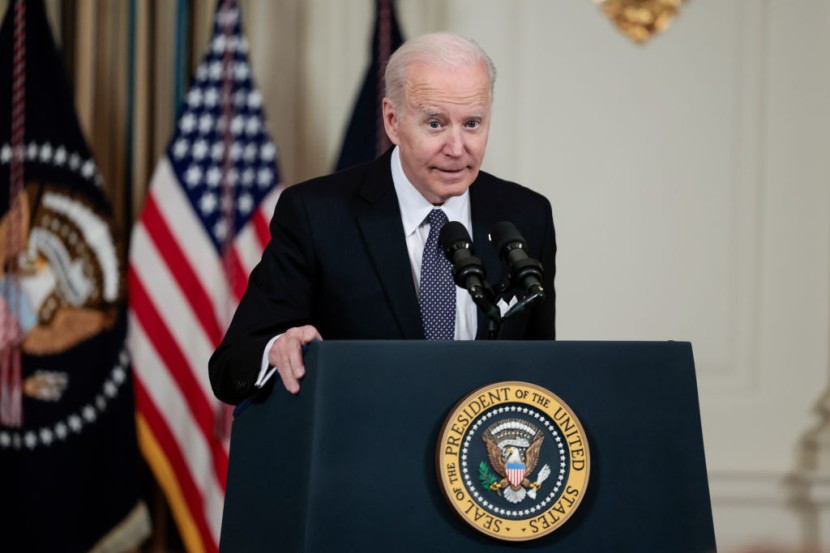
As part of a $5.6 trillion plan to finance the government until fiscal 2023, President Joe Biden presented ambitious ideas to cut the nation's deficit over the next decade by raising taxes on the rich and proposing increases for military and domestic programs.
According to the White House, the fiscal 2023 budget, which includes a tax increase on millionaires and other changes, will cut the deficit by more than $1 trillion over the following ten years. Notably, the wide proposal foregoes specific financial demands for Biden's flagship domestic policy initiative, Build Back Better, in favor of a deficit-neutral reserve fund that would serve as a stopgap until the administration and Congress can reach an agreement.
Biden Aims To Lower Expenses, Improve Economy
Shalanda Young, Director of the Office of Management and Budget, briefed reporters on the president's request on a call Monday morning, "Because those discussions with Congress are ongoing, the budget does not include specific line items for investments associated with that future legislation."
The budget includes the reserve money and outlines Biden's three principles for a deal: lower family expenses, improve the economy's productive potential, and reduce the deficit, according to Young. Last December, negotiations over Biden's domestic proposal came to a halt when Sen. Joe Manchin (D-W.Va.) stated he couldn't support the House-passed bill.
Since then, the White House has remained silent on the status of discussions with Congress, and it's unclear whether current efforts to enact a scaled-back package would be successful, according to The Hill.
Biden has proposed about $6 trillion in expenditure, which is the second biggest amount ever proposed. The biggest sum recommended was more than $6 trillion last year.
President Joe Biden's budget plan is smaller than last year's, in part to win support from moderate Democrats like Sen. Joe Manchin III (D-W.Va.). It contains a targeted reduction of the federal budget deficit, which follows the trend of the last year when the monthly deficit has decreased.
If he can persuade his party to support his idea and get it approved through reconciliation (which avoids a filibuster), he may get closer to his stated objective than Obama accomplished in any of his eight years in office, according to Washington Post via MSN.
Budget May Counter GOP Midterm Attacks
The White House is bragging that the president's budget features significant deficit reduction, a move Democrats regard as geared to appeal to a small group of moderate legislators who control the president's economic agenda in the run-up to the midterm elections.
Officials from the White House insist that the president has always stressed fiscal restraint, pointing out that President Joe Biden supported some deficit spending last year. They claim that Biden favors temporary deficit spending during a recession or emergency. However, now that the economy is recovering, the president is returning to deficit reduction.
The country's deficit would be reduced by $1.3 trillion under Biden's plan, which is not legislation but a symbolic blueprint delivered to Congress. The loss of temporary emergency pandemic financing accounts for the majority of the decline.
However, the budget proposal also calls for a minimum tax on billionaires' earnings and unrealized capital gains. Manchin, a prominent dissenter in the reconciliation discussions, has expressed support for boosting tax rates on the richest 1% of the population. Manchin has described deficit-reduction measures as "music to my ears," as per Politico via MSN.
Related Article : Biden Warns: Putin "Cannot Remain in Power"; What is Russia's Response To US President's Remark
@YouTube








